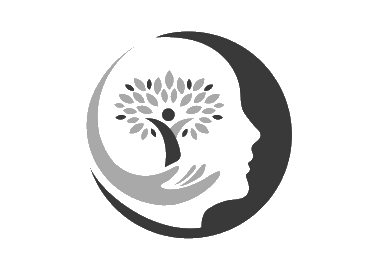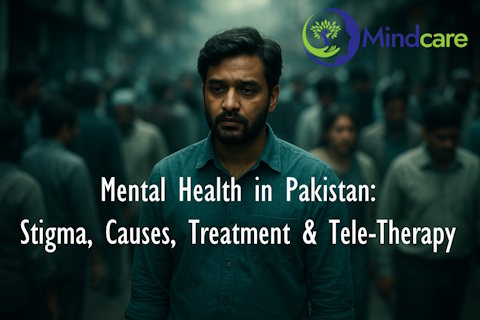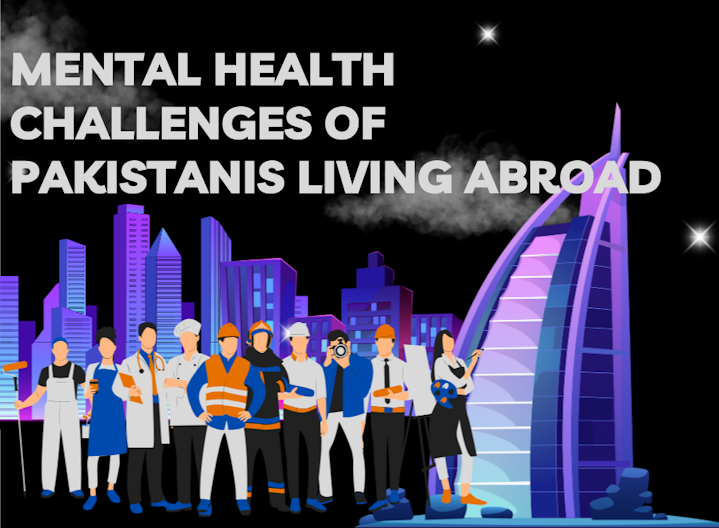Mental Health Challenges for Children & Teens in Pakistan and How Therapy Can Help
Understanding Youth Mental Health in Pakistan
Children and adolescents in Pakistan face unique mental health challenges that can affect their growth, learning, and emotional well-being. From intense academic pressure to cultural expectations and exposure to societal stressors, young people often struggle in silence. Recognizing these challenges is the first step toward providing the right support.
Common Mental Health Challenges for Pakistani Youth
1. Academic Pressure
Pakistan's education system emphasizes high-stakes exams, tuition culture, and competition for top grades. Many students experience anxiety, stress, and burnout due to unrealistic expectations from parents and schools. Supporting children with stress management and coping strategies is crucial.
2. Cultural and Social Expectations
Children may face pressure to conform to societal norms regarding gender roles, family honor, or religious practices. This can lead to internalized stress, low self-esteem, and identity struggles.
3. Limited Awareness and Stigma
Mental health awareness in Pakistan is still developing, and many families may view counseling or therapy with skepticism. As a result, children may hide their struggles, which can exacerbate anxiety, depression, or behavioral issues.
4. Trauma and Safety Concerns
Exposure to natural disasters, political unrest, or acts of violence can cause post-traumatic stress, fear, or anxiety. Therapy can help children process these experiences safely and build resilience.
5. Bullying and Peer Pressure
Cyberbullying and peer pressure are on the rise in Pakistan's urban centers. These social stressors can lead to low self-esteem, depression, or social withdrawal.
Practical Steps for Parents and Guardians
- Open Communication: Encourage children to talk about their feelings without judgment.
- Monitor Academic Stress: Balance schoolwork with breaks, hobbies, and relaxation.
- Teach Coping Skills: Introduce mindfulness, deep breathing, and problem-solving strategies.
- Support Social Connections: Encourage safe friendships and participation in community activities.
- Seek Professional Help: If a child shows prolonged anxiety, depression, or behavioral issues, therapy can provide structured support.
How Therapy Helps Pakistani Youth
Evidence-based therapy techniques — such as Child & Adolescent Therapy, cognitive behavioral strategies, and mindfulness — can help children manage stress, process trauma, and improve social and academic functioning. Therapy offers a safe, confidential space where youth can express themselves and learn resilience skills for life.
When to Seek Professional Help
Parents should consider professional support if a child or teen:
- Shows persistent anxiety or sadness for several weeks,
- Struggles to concentrate at school or in daily activities,
- Exhibits withdrawal from family and friends, or
- Engages in self-harm or risky behavior.
Finding Support at MindCare
At MindCare, we provide confidential therapy sessions tailored to the needs of children and adolescents in Pakistan. If you’re concerned about your child’s mental health, you can learn more about our Child & Adolescent Therapy or book a session with a licensed therapist today.
Conclusion
Children and teens in Pakistan face specific mental health challenges due to cultural, academic, and social pressures. Early support through therapy can help them develop coping skills, resilience, and emotional well-being. Recognizing the signs and taking action early makes a lasting difference in their lives.





